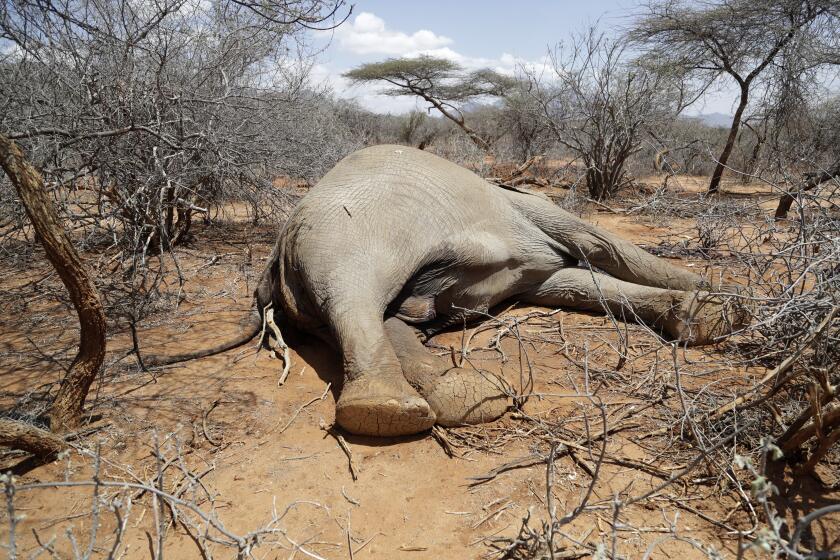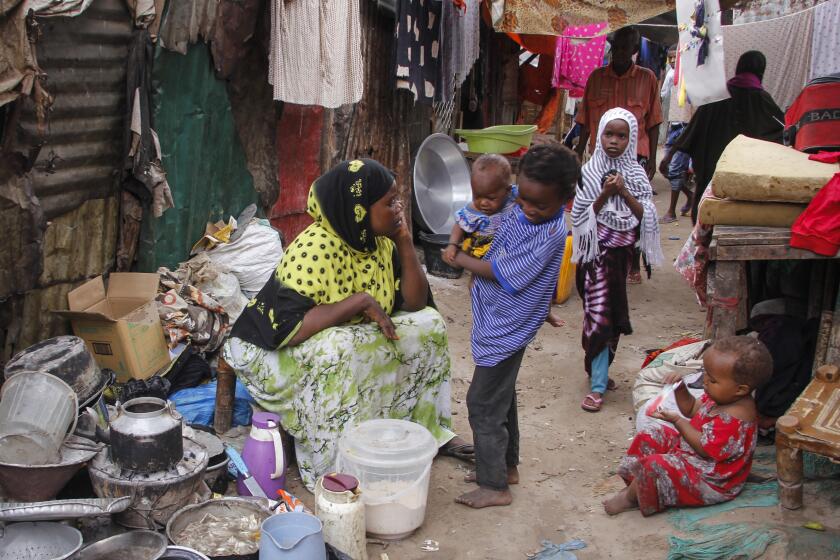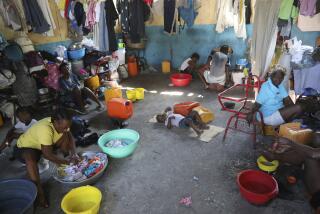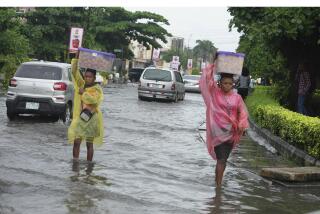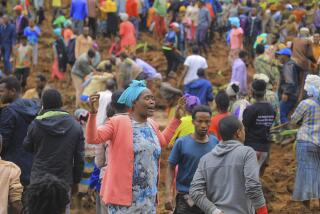An estimated 43,000 people died in Somalia drought last year, U.N. report says
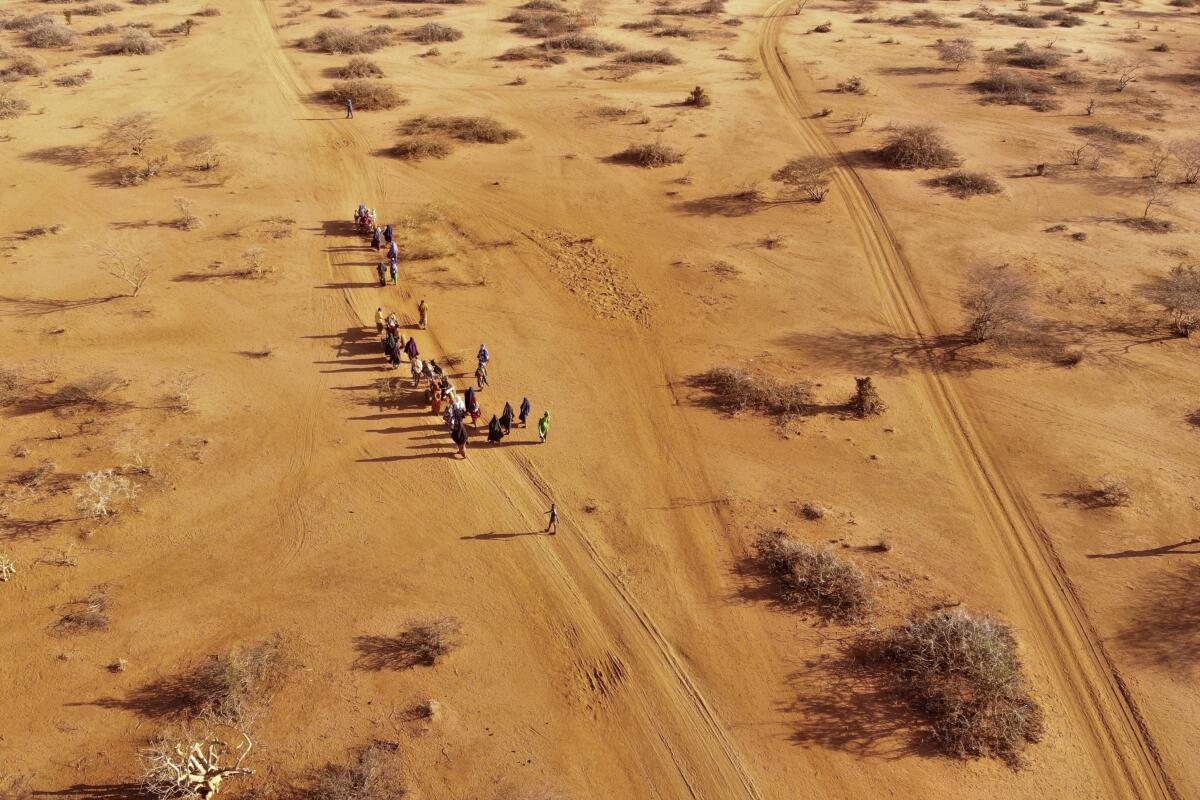
- Share via
NAIROBI — A United Nations report estimates that 43,000 people died amid the longest drought on record in Somalia last year, half of whom were probably children.
It is the first official death toll issued for the drought that is withering large parts of the Horn of Africa.
At least 18,000 people are forecast to die in the first six months of this year.
“The current crisis is far from over,” says the report, which was released Monday by the World Health Organization and the U.N. children’s agency and was carried out by the London School of Hygiene and Tropical Medicine.
Somalia and neighboring Ethiopia and Kenya are facing a sixth consecutive failed rainy season while rising global food prices complicate the hunger crisis.
The U.N. and partners earlier this year said they were no longer forecasting a formal famine declaration for Somalia for now but called the situation “extremely critical,” with more than 6 million people hungry in that country alone.
A new report says hundreds of animals have died in Kenyan wildlife preserves during East Africa’s worst drought in decades.
Famine is the extreme lack of food and a significant death rate from outright starvation or malnutrition combined with diseases such as cholera. A formal famine declaration means that data show more than one-fifth of households have extreme food gaps, more than 30% of children are acutely malnourished, and more than 2 of every 10,000 people are dying every day.
Some humanitarian and climate officials this year have warned that trends are worse than in the 2011 famine in Somalia, in which a quarter-million people died.
Millions of livestock have died in the current crisis, which has been compounded by climate change and insecurity as Somalia battles thousands of fighters with Al Qaeda’s East Africa affiliate, Shabab. The United Nations migration agency says 3.8 million people are displaced, a record high.
A food security assessment released last month said nearly a half-million children in Somalia are likely to be severely malnourished this year.
The extremist group Shabab has claimed responsibility for an unfolding armed attack on a hotel in Mogadishu, Somalia. Casualties were unknown.
This time, the world is looking elsewhere, many humanitarian officials say.
“Many of the traditional donors have washed their hands and focused on Ukraine,” the U.N. resident coordinator in Somalia, Adam Abdelmoula, told Linda Thomas-Greenfield, the United States ambassador to the U.N., during a briefing in Mogadishu, the Somali capital, in January.
More to Read
Sign up for Essential California
The most important California stories and recommendations in your inbox every morning.
You may occasionally receive promotional content from the Los Angeles Times.
